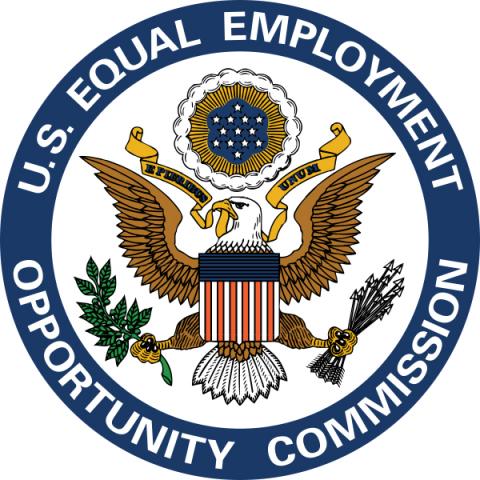
Have you ever had to change or cancel plans with your family or friends due to an emergency at work? Or maybe you wish you could simply spend more time with your family instead of at work?
If the answer to either of these questions is yes, you may be struggling with your work-life balance, although this is probably coming as no surprise to you. But is there anything that you can do about it?
Legally, the answer is that there’s not much that can be done, as long as there is equal treatment of employees and no discrimination. In practice, employees can express the importance of work-life balance and hopefully catch the attention of their employers. Employees, especially those of the Millennial generation, are starting to strongly emphasize the importance of a work-life balance, although the concerns are slow to be acknowledged.
My Own Work-Life Balance Problem
 While not a new phenomenon, today’s workers have the commonplace issue of trying to balance the desire to do well and advance at work with meeting family or personal obligations. Perhaps you’ve already read “My Story,” an article on my website about my work-life balance struggles earlier in my career. Sadly, I was not alone, as made evident in CNN Money’s article, “No. 1 Cause of Bad Work-Life Balance? Bad Bosses.” Fortunately, my work-life balance problem was not due to having a bad boss. However, like many others, my family life and health suffered.
While not a new phenomenon, today’s workers have the commonplace issue of trying to balance the desire to do well and advance at work with meeting family or personal obligations. Perhaps you’ve already read “My Story,” an article on my website about my work-life balance struggles earlier in my career. Sadly, I was not alone, as made evident in CNN Money’s article, “No. 1 Cause of Bad Work-Life Balance? Bad Bosses.” Fortunately, my work-life balance problem was not due to having a bad boss. However, like many others, my family life and health suffered.
Can Anything Be Done About the Work-Life Balance Problem?
There is no law mandating a work-life balance. A detailed discussion on the topic can be found in my article “The Law Does Not Require Work-Life Balance.” There are laws, such as the Family and Medical Leave Act of 1993 (FMLA) and the Americans with Disabilities Act of 1990 (ADA), that provide protections against discrimination for taking time off from work to care for oneself or a loved one. If an employee needs to spend more time at home taking care of a child or spouse, in some sense, the FMLA and ADA requires a work-life “balance.”
However, this is not the work-life balance that most workers currently complain about or that Millennials are starting to expect from their employers. According to Brigid Schulte’s Washington Post article, “Millennials Want a Work-Life Balance. Their Bosses Just Don’t Get Why,” Millennials’ idea of a work-life balance is not just the legal protection to take time off from work to take care of their family but rather to have flexibility in both how and where they work.
According to Schulte’s article, which discusses Ernst & Young’s “Study: Work-Life Challenges Across Generations,” one of the reasons for the worsening work-life balance is that employers are trying to get more production out of fewer employees. The second reason is the most interesting: a cultural difference between Baby Boomers and Millennials with regard to face time at work.
Millennials believe that due to technological advances, they are able to (and should be allowed to) work from anywhere. Baby Boomers, who are often the bosses of Millennials, aren’t convinced and still expect to see employees in the office. One of the reasons for this is because almost 80% of Millennials are a part of dual-income couples, where both work full-time. Of the Baby Boomers, only 47% have a full-time working partner or spouse and over 25% have a spouse or partner that either works part-time with flexible hours or that does not work outside the home.
 Because of these differences, it’s possible that the bosses just don’t understand the needs of a dual income, full-time working household. In fact, one of the biggest reasons Millennials quit jobs is the lack of work flexibility. Additionally, the lack of unpaid family leave time is becoming a problem, with 38% of male and female Millennials willing to move to another country for better paid parental leave benefits.
Because of these differences, it’s possible that the bosses just don’t understand the needs of a dual income, full-time working household. In fact, one of the biggest reasons Millennials quit jobs is the lack of work flexibility. Additionally, the lack of unpaid family leave time is becoming a problem, with 38% of male and female Millennials willing to move to another country for better paid parental leave benefits.
For Millennials, a better work-life balance or work flexibility is a top priority when looking for a new job. Most employers are starting to take notice, although they still tend to feel work-life accommodations are an exception rather than the norm. Over time, the influence of Millennials in the workplace will grow and possibly create a large-scale shift in work-life balance philosophy.
Summing It Up
- There is no law that requires a work-life balance, although there are federal laws that provide worker protections for taking time off from work for caregiver responsibilities.
- Baby Boomers still expect employees to put in office face time, despite technological advances that Millennials claim can make working anytime from anywhere possible.
- About 80% of Millennials are a part of a dual-income couple, where both work full-time. However, only 47% of Baby Boomers have a partner or spouse who works full-time.
- Over 25% of Baby Boomers have a spouse or partner that either works part-time with flexible hours or does not work outside the home.
- Thirty-eight percent of Millennials are willing to move to another country to obtain better paid parental leave benefits.
- Work-life balance or work flexibility is a top priority for Millennials looking for new jobs.





